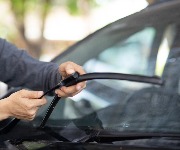The Home Counties: the home of debt

Debt isn't just found in the inner-cities.
Where would you find the highest average amount of personal debt? If you polled the general public they’d tend to say the inner-cities.
Yes, they tend to get hit hardest by debt, but for the most indebted, we need to look closer to home. We need to look at the leafy suburbs of London and the South East.
Last week we highlighted how Richmond’s middle-class suburbia is tempered by the huge amount of unsecured debt that also exists in the area; along with being the best savers in the country, Richmond also contains some of the UK’s most indebted citizens.
Our newly-released 2010 Debt View statistics highlight Richmond’s problem. The average debt in the Twickenham area was £22,382, or 16% higher than the national average; next door in the Kingston upon Thames postcode, the average debt rose to £24,169 (25% higher than average).
But Richmond-ites aren’t alone in owing a huge amount of money; across London’s commuter belt average personal debt is sky high.
Our 2010 regional debt figures, shown in an infographic released today, show that Slough in Berkshire has the highest average debt in the UK, at a touch under £25,000. While this figure has actually fallen £2,000 since 2009, it’s still a monumental amount of unsecured debt (debt from credit cards, personal loans, store cards and the like).
The full list of the top ten debt areas of the UK shows the scale of the issue facing the South East:
- 1. Slough £24,946
- 2. Watford £24,783
- 3. Sutton £24,489
- 4. Kingston upon Thames £24,169
- 5. Guildford £23,945
- 6. Harrow £23,633
- 7. Crewe £23,177
- 8. Stevenage £23,076
- 9. Tonbridge £23,031
10. Chelmsford £22,708
Only Crewe, on the edge of ‘Cheshire set’ country, prevents the top ten being wholly London commuter belt (Redhill in Surrey is 11th). Four areas are within the M25 (Watford, Sutton, Kingston upon Thames and Harrow), while five are just outside (Slough, Guildford, Stevenage, Tonbridge and Chelmsford).
More tellingly, they’re all quite respectable towns (none are cities), with little in the way of ghettos, grubby tower blocks and the usual outward signs of what the general public perceives as “debt”, i.e. poverty. A scan of places 11-20 confirms these findings, with seven more commuter-belt towns.
And worse, despite the national trend of falling unsecured debt, Watford is one of the few areas in the UK to see a rise (by 5%) in debt between 2009 and 2010.
We’ve talked about middle-class debt in the past, highlighting that in 2009 “CCCS counselled over 2,000 [people who] earned more than 90% of the UK population, or over double the national median income.” It may seem obvious but earning a high income doesn’t preclude having a high amount of debt.
How can the Home Counties’ households avoid problem debt?
1. Budget wisely: Running costs are more in London and the South East so ensure the income and outgoings are balanced every month. Credit Action, our sister charity, has budget sheets and a budget builder on its website for you to fill in.
2. Don’t keep up with the Joneses: The suburban pressure to have the latest SUV, the family holiday in some “delightful out of the way place” in Tuscany or Provence, and public schooling for the children has to be resisted if there’s no money in the kitty. Learn about self control (point 3).
3. Don’t apply for credit that’s not needed: It tends to be easier for people in respectable towns to get more credit. Is it needed? Will you spend more if you’ve got the opportunity? Say no. If you’ve got too many cards, cut them up.
4. Use savings to pay off debts: Always pay debts off first rather than hoarding money while the bills stack up, especially as interest rates on savings are so low at the moment.
5. Learn to be more like a Shetland Islander: The Shetland Islands had the lowest average debt of any part of the UK in 2010, at £12,278 (less than half of the average debt of Slough). This is partly because there’s so much less chance of an impulse purchase in Lerwick than London. So follow the Islanders lead and avoid the impulse to spend.
We should all remember that while poverty and debt is linked, you can have debt without poverty. The huge figures, highlighting middle class debt around London’s commuter-belt, are testament to this.
As we said in our blogpost on the middle-class last year, debt “doesn't just happen to those with low earnings”. There are thousands of households in the leafy suburbs of the South East that are suffering from debt problems right now.
If you’re suffering from debt problems in the Home Counties or anywhere else in the UK then contact us for help and advice. Use our anonymous, online debt counselling to find a solution quickly.
Most Recent
Comments
-
Mike 10613, Steve Robertson and others make excellent points. The way I see debt is that it is a crafty trick by the lender to turn me into their income stream. That is, instead of working to earn money for myself, I will be working for the lender, with an added boost if the borrower does not understand compound interest and allows the debt to spiral. Then maybe the poor borrower will be working for the lender for ever. Those who understand compound interest collect it. Those who do not are doomed to pay it. It’s really not rocket science; don’t buy stuff if you don’t have ready money to pay for it. Most aspiration “must have” consumer items are just not worth bothering with. I agree with steve Robertson. These days cars are generally reliable and durable and can make it to 200,000 miles. Who needs a brand new “Chelsea Tractor” which will lose 25% of its value a soon as you drive it off the forecourt? Just don’t take on any unsecured debt. You know it makes sense.
REPORT This comment has been reported. -
onthecomputer, makes excellent points. I had Sky media telling me I needed a satellite to cope with the 'digital switchover'. I have a Freeview recorder and so I'll cope fine. They said I needed Sky because I would get 'bad signals'. I explained to their canvasser that I used to be a technician in the television centre and that I had to use an attenuator to reduce signal strength it's so strong. My neighbours all get weak signals according to Sky! The signal will actually get even stronger after the digital switchover because the transmitters are currently on reduced power so they don't interfere with the old analogue signal that is due to be turned off! They will lie to you to get you to buy stuff and that applies to all major companies selling utilities; water, gas, telecoms or television - they are all rip off merchants.
REPORT This comment has been reported. -
The 'average unsecured debt' appears to be an average of people who have used counselling services from the Consumer Credit Counsellling Service, not an average of all the people in an area. The article appears to make no attempt to allow for the absolute number of people being counselled or the number of people in a given area and is therefore, as far as I can see, meaningless. Of course the average debt of highly indebted people is higher in places that are more expensive to live. That proves nothing at all. The fact that the Twickenham area had 849 people conselled in 2010 against 1105 in Cleveland or 1242 in Warrington or 1502 in Doncaster or 1619 in Peterborough perhaps suggests the opposite conclusion could've been reached if the proportion of the population in debt had been taken into account. I might also point out that the Twickenham postcode also includes the leafy suburbs of Hounslow, Isleworth and parts of Hillingdon.
REPORT This comment has been reported.
Do you want to comment on this article? You need to be signed in for this feature









20 June 2011